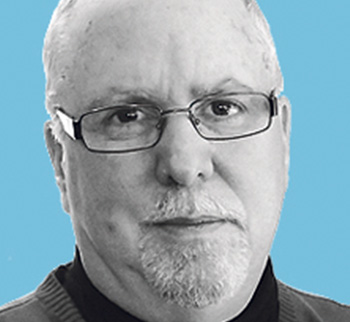Reflecting on Passover just past, I’ve always been enthralled with the centrepiece of the Seder. As a child, I used to refer to it in Yiddish as the Fir Kashes, The Four Questions. And that got me thinking: since I officially left professional Jewish communal advocacy almost five years ago, four questions have consistently dogged me.
1. Why did you leave Jewish communal work?
As 2010 was drawing to a close, it became quite clear to me that a sea change was about to occur in Canadian Jewish advocacy. There was much talk about the financial resources being spent on advocacy and that a new, more streamlined approach would be necessary. As I kept my ear to the ground, the chatter centred more and more around the need to place a greater emphasis on Israel advocacy.
I certainly understood the need to advocate aggressively on behalf of Israel, but I felt strongly that the agency mandated to undertake this work, the Canada-Israel Committee (CIC), was already doing a stellar job. I saw the evolution of thinking toward a new single entity that I believed was unnecessary. Nonetheless, that’s exactly what happened. Canadian Jewish Congress and the CIC were gobbled up and the Centre for Israel and Jewish Affairs (CIJA) was born.
It became clear to me that CIJA’s emphasis would be exactly as its name implied: Israel advocacy. I have the deepest of respect for the professionals at CIJA who advocate on our behalf, even if in my opinion the weight of that advocacy is unbalanced. However, I have always believed that social justice, human rights, refugee support and helping the impoverished were core Jewish values. Losing the necessary balance between Israel advocacy and social justice troubled me greatly.
Concomitant to these developments, I was approached by the Ontario Liberal Party to consider running for political office. I had always harboured the idea of entering politics, and with the blessings of my board, I took a leave of absence to run in the provincial riding of Thornhill. It was a great learning experience, and while I did not reach the holy political grail, it did help shape the rest of my journey.
2. Why a Liberal?
I am proud of my Liberal roots. With their emphasis on compassion, human rights and a just society, they mirror for me what Jewish core values are all about. Following in the footsteps of folks such as Irwin Cotler, Herb Gray, Robert Kaplan, Monte Kwinter, Elinor Caplan and many more was a true honour.
3. What are you doing today?
During my time off, I met an incredible socially progressive philanthropist, Michael Dan. He was then chair of the Canadian Peres Centre for Peace, on whose board I sat. We began to talk about his work, which is basically helping First Nations reach economic independence.
I helped him with the provincial political process, connecting him to a number of ministers he needed to access. Next thing you know, he asked me to work with him. Today I assist Michael in his First Nations work and administer his Paloma Foundation, which provides learning opportunities for frontline staff at homeless youth shelters.
4. Why First Nations?
I have long tried to be a champion of the underdog. As a son of a Holocaust survivor, this was simply in my DNA. As I continued my work with Michael, I began to see a synergy between the tragic histories of our two peoples. We, too, were an aboriginal people faced with prejudice, bigotry and genocide. As a Canadian Jew, I believe we have much to share with and much to learn from our First Nations. We’re two peoples that have for so long travelled different, yet in some ways parallel, roads.
There is much more to be said about this. I will do so in Part 2 of this column next month.
